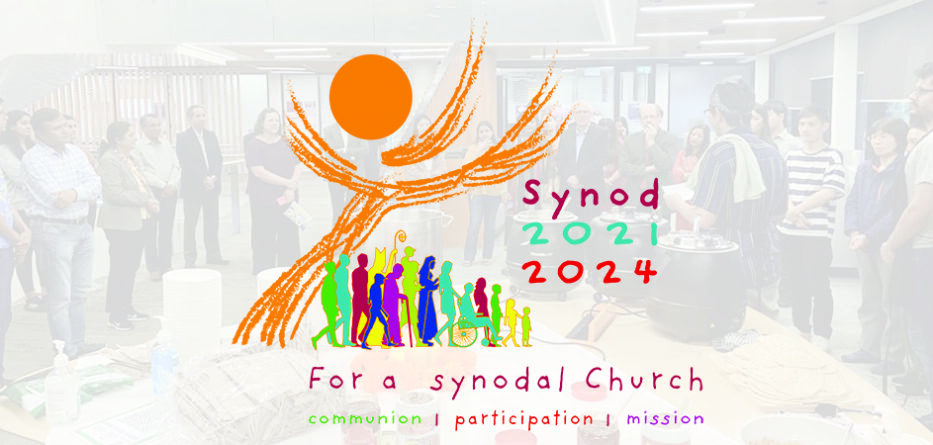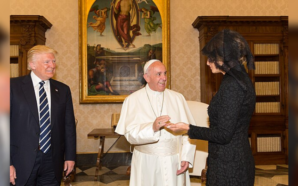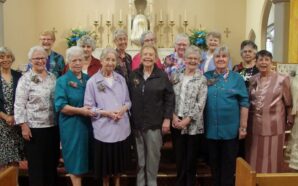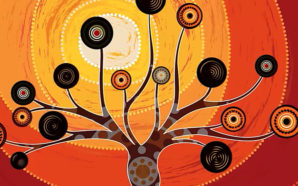Over 120 current and former local, national and international leaders of various lay apostolate movements and groups from 33 countries – many from the Global South – have added their names to a Contribution to the First Assembly of the Synod on Synodality.
According to Australian Cardijn Institute secretary, Stefan Gigacz, the statement aims to draw Synod participants’ attention to several issues:
- The need for a clear focus on the promotion of the lay apostolate of lay people as envisaged particularly in Lumen Gentium31, Gaudium et Spes §43 and more generally in Apostolicam Actuositatem.
- The need for better representation among participants in the First Assembly of the Synod of international Catholic (lay) movements and networks.
Such movements were extensively represented in the later Sessions of Vatican II and also at the Synod on the Laity in 1987. Indeed, many of these movements were pioneers in the promotion of the laity and indeed of what we would now characterise as a synodal way of working.
3. The need for a fresh look at the provisions of Apostolicam Actuositatem 26, which clearly called for more representative and participative structures involving grassroots lay movements and organisations from local to global level.
He noted that the statement addressed a series of longstanding concerns dating back to the Second Vatican Council.
“During the Council, the lay apostolate movements also known as Specialised Catholic Action movements successfully advocated for representative Church structures that would involve the lay movements at parish, diocesan, national and international level. The Decree on the Apostolate of the Laity, Apostolicam Actuositatem adopted these proposals in its §26.
“But to the great disappointment of Cardijn and the leaders of the lay movements, these reforms were not implemented when the first Vatican Council of the Laity was established in 1967. Today, the current Dicastery for Laity, Family and Life is still not a representative body.
“This is surely an issue that needs to be addressed by the Synod on Synodality;” he added.
Signatories to the statement include Emeritus Bishop of Darwin, Eugene Hurley, Rienzie Rupasinghe, a member of the first Pontifical Council of the Laity (PCL) in 1967, Patricia Jones, another former member of the PCL. Joceline Minerve, former Minister of Social Welfare in Mauritius, is another prominent signatory as is former Pax Romana ICMICA president, Kevin Ahern.
Current international YCW leaders, Clémence Otekpo (ICYCW) and Basma Louis (IYCW), are also among the signatories as are former IYCW presidents Rienzie Rupasinghe, Juanito Penequito (Philippines), Felix Ollarves (Venezuela), Moses Cloete (South Africa), Geethani Peries (Sri Lanka), Ludovicus Mardiyono (Indonesia) and Sarah Prenger (Germany).
Groups and movements that have endorsed the statement include Cardijn Community International, Australian Cardijn Institute, Cardijn Community Australia, Cardijn Community Zambia, International Young Christian Workers, Cardijn Associates USA, Woori Theology Institute, Seoul, Korea, Asian Lay Leaders Network, the Splendour Project and other signatories.
The statement is dated 1 October 2023, Feast of St Therese of Lisieux, patron of the Young Christian Workers and Specialised Catholic Action.
Read the full statement below:
Our appeal to Synod 2023-24 participants
This is an appeal signed by a variety of movements, groups and networks concerned to bring our reflections and proposals to the attention of participants in the Synod on Synodality 2023-24.
Walking with lay people to foster their vocation and mission in the world and the Church
Introduction
Lay people comprise over 99.9% of the “People of God” as the Council characterised the Church in Lumen Gentium. In turn, perhaps 90% or more of the lives of lay people is spent at work, raising families, contributing to communities or otherwise building up the Kingdom of God..Hence, the importance of what Joseph Cardijn often characterised as the “lay apostolate of lay people” carrying out their mission building up and transforming their lives, communities and the world. And the added importance of those movements, communities and organisations that promote this lay apostolate.
The lay apostolate
Cardijn’s vision corresponds closely with that ultimately incorporated in Lumen Gentium, §31:
[T]he laity, by their very vocation, seek the kingdom of God by engaging in temporal affairs and by ordering them according to the plan of God. They live in the world, that is, in each and in all of the secular professions and occupations. They live in the ordinary circumstances of family and social life… They are called there by God that by exercising their proper function and led by the spirit of the Gospel they may work for the sanctification of the world from within as a leaven. In this way they may make Christ known to others, especially by the testimony of a life resplendent in faith, hope and charity…
This vision is further developed in Gaudium et Spes §43, which adds:
Secular duties and activities belong properly although not exclusively to laypeople. Therefore acting as citizens in the world… Laypeople should also know that it is generally the function of their well-formed Christian conscience to see that the divine law is inscribed in the life of the earthly city… [E]nlightened by Christian wisdom and giving close attention to the teaching authority of the Church, let the layperson take on his/her own distinctive role.
In turn, Apostolicam Actuositatem reiterates this understanding and emphasises the need for formation for this lay apostolate, praising the work of those movements, communities and organisations devoted to its promotion. Indeed, §26 of the decree insists on the need to incorporate the work of these movements, communities and organisations into the Church’s work through councils established at diocesan, national and global level. In particular, it calls for “a special secretariat” to be established “at the Holy See for the service and promotion of the lay apostolate” in which “the various movements… of the apostolate of the laity throughout the world should also be represented.”
Reality
Paradoxically, despite this clear endorsement of the lay apostolate by the Council Fathers, the concept of “lay apostolate” has largely disappeared from Church vocabulary, particularly in English, where it has been displaced by a growing emphasis on “ministry,” including “lay ministry.” And yet it is clear that “ministry” in the Vatican II documents relates principally to the ordained ministry. In another paradox, despite the impressive growth in the number of lay theologians around the world, the study of the lay apostolate by theologians appears to have barely progressed since the Council.
Even more concerning is the equally paradoxical decline since the Council of many movements devoted to the lay apostolate. Instead, we have witnessed the rise of many more overtly “spiritual” movements that sometimes appear to lack the social dimension of the lay apostolate movements. We particularly note that the provisions of Apostolicam Actuositatem §26 remain largely unimplemented, particularly in relation to the establishment of participative structures for lay movements. Even the Dicastory for Laity, Family and Life established in 2016 fails to provide for this.
In this context, we note the dissolution of the Conference of International Catholic Organisations in 2008, a conference that brought together many of the international movements and organisations most responsible for the promotion of the lay apostolate. As a result, there is no longer any body that represents or advocates on behalf of lay organisations before the universal Church. The consequences of this, we believe, are particularly visible in the lack of participation by international lay movements in the First Assembly of the Synod on Synodality.
Reflection
Theologians often speak of the “reception” or “non-reception” of a particular teaching of the Church or a Council. Here, we regretfully observe that the Vatican II teaching on lay apostolate and the role of the lay movements appears not to have been received to the extent that the Council Fathers – and the lay auditors who assisted in the drafting of the Council documents – would have envisaged and desired. While the post-conciliar understanding of “lay ministry” is undoubtedly a positive development, we are nevertheless greatly concerned that it appears to have obscured and overshadowed the Church’s understanding of “the lay apostolate” “proper” to lay people.
We lament the decline of the lay apostolate movements and we express our concern at the lack of a successor organisation to the ICO Conference. We believe that there is an urgent need for a renewed attention to and reception of the teachings of the Council on lay apostolate.
We note that the Instrumentum Laboris for the First Assembly raises many questions relating to lay movements, organisations and communities. We believe that it is contrary to the notion of synodality understood as “walking together” that these questions should be addressed in the absence of so many lay movements.
Resolution
We call on participants at the Synod on Synodality to reflect deeply on the above developments. We express the hope that changes will be made to ensure much broader representation of the international lay movements, communities and organisations at the Second Assembly of the Synod.
We call on the Synod participants, particularly its lay participants, to speak out strongly on the above issues and ensure that measures are proposed to meet these challenges, including particularly the promotion of the lay apostolate and the development of structures representing lay people, their movements and communities at every level of the Church…
Let us together build a Church that walks together with ordinary people in the struggles of their daily lives at work, in their families and in the community.
Cardijn Community International, Australian Cardijn Institute, Cardijn Associates USA, Cardijn Community Australia and other signatories
1 October 2023
Feast of St Thérèse of Lisieux, patron of the Young Christian Workers and Specialised Catholic Action
With thanks to the Australian Cardijn Institute.








